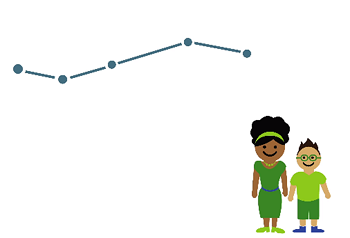Professional Learning Opportunities
The opportunities below offer various levels of support for educators and leaders interested in furthering their learning about assessment and data use.
Data and Assessment Literacy (MnDAL) Professional Learning Opportunities
The opportunities below offer various levels of support for educators and leaders interested in furthering their learning about assessment and data use.
- On-Demand Learning (MnDAL Course for Educators and Leaders)
- Implementing the MnDAL Course with Teachers (virtual community of practice meetings)
- Year-long cohort for teacher teams: Student Agency in Learning (SAIL)
1. On-Demand Learning: MnDAL for Educators and Leaders Online Course
MDE partnered with WestEd to produce a growing library of professional learning resources for educators and leaders in the Canvas learning platform. Each module contains articles, discussion boards, videos, and activities for use in professional learning. Preview and access each topic at the On-Demand Learning page.
2. COMPASS
3. Year-Long Cohort: Student Agency in Learning (SAIL)
Student Agency in Learning (SAIL) is a year long cohort that includes teams of educators and leaders from across the state. SAIL content integrates principles of formative assessment with student identity, and classroom culture - to enrich and deepen instructional practice in support of student agency.
Each school-based team should include one school leader, one site facilitator (educator or leader), and at least four additional teachers. School system leaders like instructional coaches, peer coaches, and COMPASS staff are encouraged to apply as part of a school-based team. Leaders play a significant role in supporting the opportunities, culture and conditions that advance teacher learning. Schools that are most successful in SAIL have educators and leaders working alongside one another to learn about and support the changing roles of students, through formative assessment. Lastly, teams should already have an established meeting structure for professional learning (like MnMTSS linked teams; PLCs, co-planning or grade-level teams) that meet weekly or bi-weekly within your school schedule. This is critical successfully planning the site-based community of practice meetings.
Educators will participate in continuous learning cycles of new content, the application of formative assessment skills in the classroom, community of practice meetings, and self-reflection on progress within a blended, digital and in-person learning design. The blended learning design encourages teachers to take risks and integrate new content with existing expertise, while also developing an awareness of where they will lean in to improve student outcomes.
Outcomes
- Use success criteria to guide their learning
- Talk about evidence of their learning
- Persevere in their learning
- Give more thoughtful and extended answers during classroom dialogue
- Engage with feedback to further their own, and peers, learning
- Set academic and personal goals
- Ask questions of themselves and others
- Reflect on and learn from mistakes
| Module | Title and Time | Learning Outcomes |
|---|---|---|
| 1 | Introduction to Formative Assessment and Student Agency 3-4 Weeks | Teachers will be able to:
|
| 2 | Eliciting and Interpreting Evidence 4-5 Weeks | Teachers will be able to:
|
| 3 | Using Learning Goals and Success Criteria 4-5 Weeks | Teachers will be able to:
|
| 4 | Teachers and Students Responding to Evidence to Guide Next Steps in Learning 4-5 Weeks | Teachers will be able to:
|
| 5 | Reflection, Celebration, and Next Steps in Learning 4 Weeks | Teachers will be able to:
|
Commitment
- Designating a site leader who will develop a professional development calendar that aligns to your school and district calendar (WestEd and MDE will provide sample resources);
- Attendance at the virtual SAIL Leadership Launch and Facilitator Launch in August for all site leaders and/or facilitators;
- Attendance at the virtual SAIL Teacher Launch in September;
- Engagement in asynchronous online learning throughout the school year via Canvas (roughly 1 hour per week);
- Implementation of the tools and practices learned in the asynchronous modules;
- Attendance at all synchronous virtual meetings for site facilitators (monthly; 6 total).


